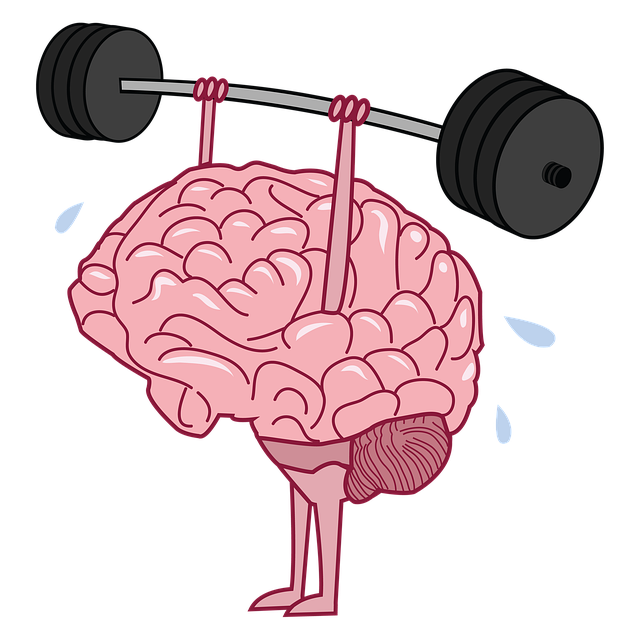Young adults aged 18-35 face unique mental health challenges, with codependency emerging as a significant issue due to academic, career, and social media pressures. Early intervention through specialized therapy focused on self-esteem building and boundary awareness is crucial. Mental wellness apps are transforming therapy by offering accessible, discreet support tailored to young adults' needs, including journaling exercises, emotional intelligence guidance, peer connections, and educational resources. These apps cater to codependency while addressing broader mental health concerns, revolutionizing community outreach with tailored support anytime, anywhere. Effective marketing strategies leveraging social media and influencer partnerships are key to user engagement and retention in this competitive market.
In today’s digital age, mental wellness apps are transforming the way young adults access support. With rising rates of codependency among this demographic, innovative solutions like mobile applications offer promising avenues for therapy and recovery. This article delves into the critical role these tools play in addressing codependency, exploring essential features, development processes, and marketing strategies to enhance user retention. By understanding young adult mental health and leveraging app technology, we can foster effective therapy and improve overall well-being.
- Understanding Young Adult Mental Health and Codependency
- The Role of Apps in Addressing Therapy for Codependency
- Features Essential for a Successful Mental Wellness App
- Development Process: From Concept to Launch
- Marketing and Engagement Strategies for User Retention
Understanding Young Adult Mental Health and Codependency

Young adult mental health is a critical and often overlooked aspect of overall well-being. This demographic, typically defined as individuals between 18 and 35 years old, faces unique challenges that can significantly impact their psychological state. Stress from academic or career pressures, financial uncertainties, and social expectations can contribute to an increased risk of mental health disorders such as anxiety, depression, and codependency.
Codependency, a condition where individuals become overly dependent on the approval and validation of others, is particularly prevalent among young adults. This can stem from various factors, including childhood experiences, cultural influences, or social media’s relentless pressure to present an idealized self. Recognizing and addressing codependency early is crucial, as it often manifests in unhealthy relationships and a distorted sense of self-worth. Therapy for Young Adults with codependency focuses on developing self-esteem, improving communication skills, and fostering a deeper understanding of personal boundaries. Healthcare Provider Cultural Competency Training can play a vital role in ensuring these services are delivered sensitively and effectively, catering to the diverse needs of young adults navigating their mental wellness journey, including guidance through Mental Wellness Journaling Exercises to reinforce positive thinking and Self-Esteem Improvement strategies.
The Role of Apps in Addressing Therapy for Codependency

In today’s digital era, apps are playing a significant role in addressing therapy for codependency, particularly among young adults. These innovative tools offer accessible and discreet means to support individuals navigating complex emotional landscapes. Mental wellness apps, incorporating features like journaling exercises and guidance on emotional intelligence, provide platforms for users to track their feelings, set boundaries, and understand their relationships better. By integrating evidence-based practices into daily routines, these apps foster self-awareness and coping mechanisms that are crucial for managing codependency.
Community outreach program implementation within these apps further enhances the therapeutic experience. Through online forums and support groups, users can connect with peers facing similar challenges, creating a sense of belonging and shared understanding. This interconnection encourages accountability, offers alternative perspectives, and promotes positive behavioral changes. As a result, mental wellness apps not only serve as valuable tools for individual therapy but also revolutionize community outreach by providing accessible, anytime, anywhere support tailored to address the unique needs of young adults struggling with codependency.
Features Essential for a Successful Mental Wellness App

A successful mental wellness app should offer a comprehensive suite of features tailored to address various aspects of users’ mental health journeys. For young adults seeking therapy, an effective app must provide accessible and affordable counseling options, allowing them to connect with licensed therapists who specialize in their unique needs, such as codependency issues. Incorporating tools for self-assessment, mood tracking, and personalized meditation or mindfulness exercises can empower users to actively engage in their mental wellness. Features like live chat support, peer-to-peer connections, and educational resources on topics like burnout prevention and trauma support services further enhance the app’s utility.
Additionally, focusing on boosting self-esteem and overall well-being is vital. This can be achieved through positive affirmation tools, goal-setting features, and achievements tracking, encouraging users to cultivate a healthier relationship with themselves. By integrating these essential components, a mental wellness app caters to a wide range of user needs, from therapeutic support to self-improvement initiatives, ensuring it appeals to a broader audience seeking effective tools for managing their mental health.
Development Process: From Concept to Launch

The development process for a mental wellness app begins with a concept, inspired by the growing need for accessible therapy and support among young adults grappling with codependency and various mental illnesses. This initial phase involves market research, identifying gaps in existing resources, and defining target demographics to ensure the app caters to specific needs, such as emotional well-being promotion techniques tailored for this age group.
As development progresses, designers and developers collaborate to create intuitive interfaces and effective features. This may include integrating evidence-based practices, like cognitive-behavioral therapy techniques, into interactive modules aimed at reducing mental illness stigma through education and self-care tools. Additionally, social skills training components can foster connections, combat isolation, and encourage peer support within the app community. The launch phase involves rigorous testing, user feedback integration, and marketing strategies to ensure a successful introduction into this competitive yet impactful market.
Marketing and Engagement Strategies for User Retention

Marketing and engagement strategies play a pivotal role in retaining users on mental wellness apps, especially those catering to young adults grappling with codependency issues. Beyond traditional advertising, leveraging social media platforms and influencer partnerships can foster community and build trust among this demographic. Engaging content like emotional intelligence workshops, tips for self-care routine development, and guided mental wellness journaling exercises not only attract new users but encourage existing ones to return regularly.
Interactive features such as challenges, rewards systems, and peer support groups can further enhance user engagement. By focusing on personalized experiences that promote self-discovery and coping mechanisms, these strategies can help maintain a loyal user base seeking effective therapy for young adults codependency.
Mental wellness apps have the potential to revolutionize therapy for young adults dealing with codependency by offering accessible, personalized support. By incorporating evidence-based practices and engaging features, developers can create tools that foster self-awareness, build healthy relationships, and promote long-term recovery. Following a structured development process, incorporating essential features, and implementing effective marketing strategies, mental wellness apps can make a significant impact in addressing the unique challenges faced by young adults struggling with codependency.














